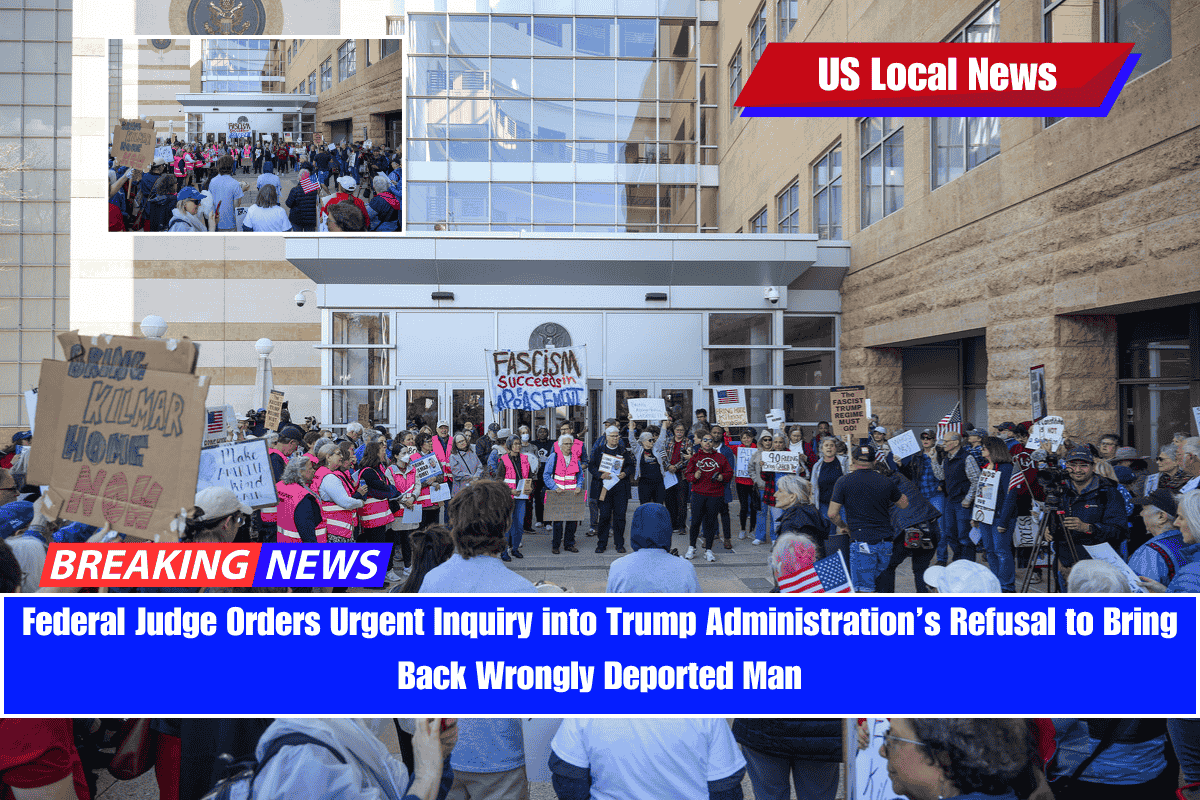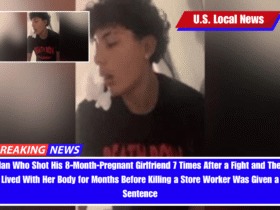GREENBELT, Maryland — A federal judge has launched a high-stakes, fast-moving investigation into the Trump administration’s refusal to facilitate the return of Kilmar Abrego Garcia, a Maryland resident who was wrongfully deported to El Salvador in violation of a court order.
U.S. District Judge Paula Xinis ordered an “intense” two-week discovery process, warning that the administration’s apparent inaction is prolonging the illegal detention of an innocent man in one of El Salvador’s most notorious prisons.
“We’re going to move. There will be no tolerance for gamesmanship or grandstanding,” Xinis said Tuesday, signaling a no-nonsense approach to enforcing compliance with federal court rulings.
Who Is Kilmar Abrego Garcia?
Abrego Garcia, a native of El Salvador, entered the U.S. at age 16 around 2011, fleeing gang violence. Prior to his deportation last month, he had lived in Maryland with his U.S. citizen wife and children and worked as a sheet metal laborer. He has no criminal record.
Despite this, the Trump administration deported him in violation of a 2019 court order that specifically barred removal to El Salvador due to credible fears for his safety. That order was upheld last week by the U.S. Supreme Court.
What the Judge Ordered
Judge Xinis has now ordered four senior officials from the Department of Homeland Security (DHS) and the State Department to sit for under-oath depositions by April 23. These include:
- Joseph Mazzara, acting general counsel at ICE
- Michael Kozak, senior official in the State Department’s Bureau of Western Hemisphere Affairs
The judge also granted expedited discovery, allowing Abrego Garcia’s attorneys to obtain documents and internal communications about his deportation.
Xinis called the administration’s refusal to seek Abrego Garcia’s return “stunning,” especially since officials acknowledge the deportation was done in error.
Trump Administration’s Position
Despite acknowledging their mistake, Trump officials have said they can’t get him back, arguing he’s now under El Salvador’s jurisdiction. During a joint appearance Monday between President Trump and Salvadoran President Nayib Bukele, Bukele brushed off the situation, saying he couldn’t “smuggle” Abrego Garcia back into the U.S.
But Judge Xinis called Bukele’s remarks “non-responsive” and criticized the administration for relying on press comments instead of direct diplomatic channels.
“There is, in my view, nothing to appeal. Now, we get to the facts,” Xinis told the government’s legal team.
White House Escalates Rhetoric
Meanwhile, White House Press Secretary Karoline Leavitt on Tuesday accused Abrego Garcia of human trafficking, despite there being no criminal charges or evidence presented in court to support that claim. She also ridiculed press coverage suggesting Garcia is a devoted family man.
The administration has further stated that if Garcia is released and returned to the U.S., they plan to detain him again immediately and either deport him to a different country or try to reverse the 2019 deportation ban.
Judge Demands Urgent Compliance
Judge Xinis made it clear this case isn’t going away quietly.
“Cancel vacations, cancel other appointments,” she told the courtroom. “All hands on deck.”
She also took a firm stance on the administration’s delay, saying the Supreme Court ruling left no wiggle room—the U.S. government is obligated to work toward Abrego Garcia’s release, regardless of political preferences or diplomatic hesitations.
Legal Expert Commentary
Legal analysts say this case is shaping up to be a major confrontation between the judiciary and the executive branch, especially regarding immigration enforcement and foreign policy boundaries.
Abrego Garcia’s lawyer, Rina Gandhi, called the administration’s behavior “stonewalling”, pointing out that the government has not even clearly asked El Salvador to release him—a step that Gandhi says is common in other immigration cases.
“The government routinely seeks return by taking low-level actions outside the United States that do not implicate foreign policy,” she said.











Leave a Reply